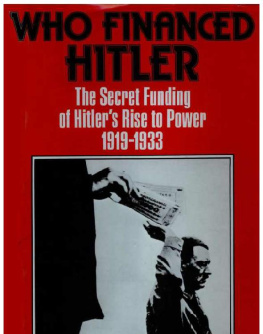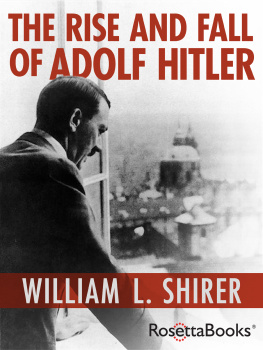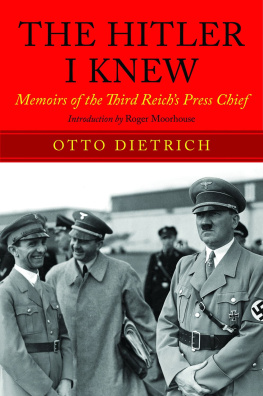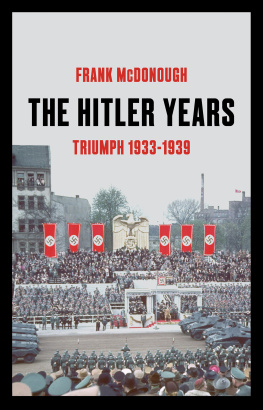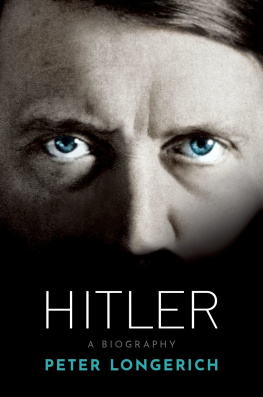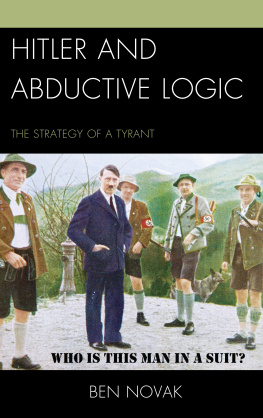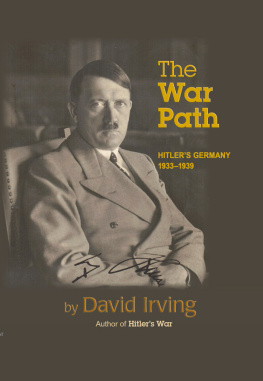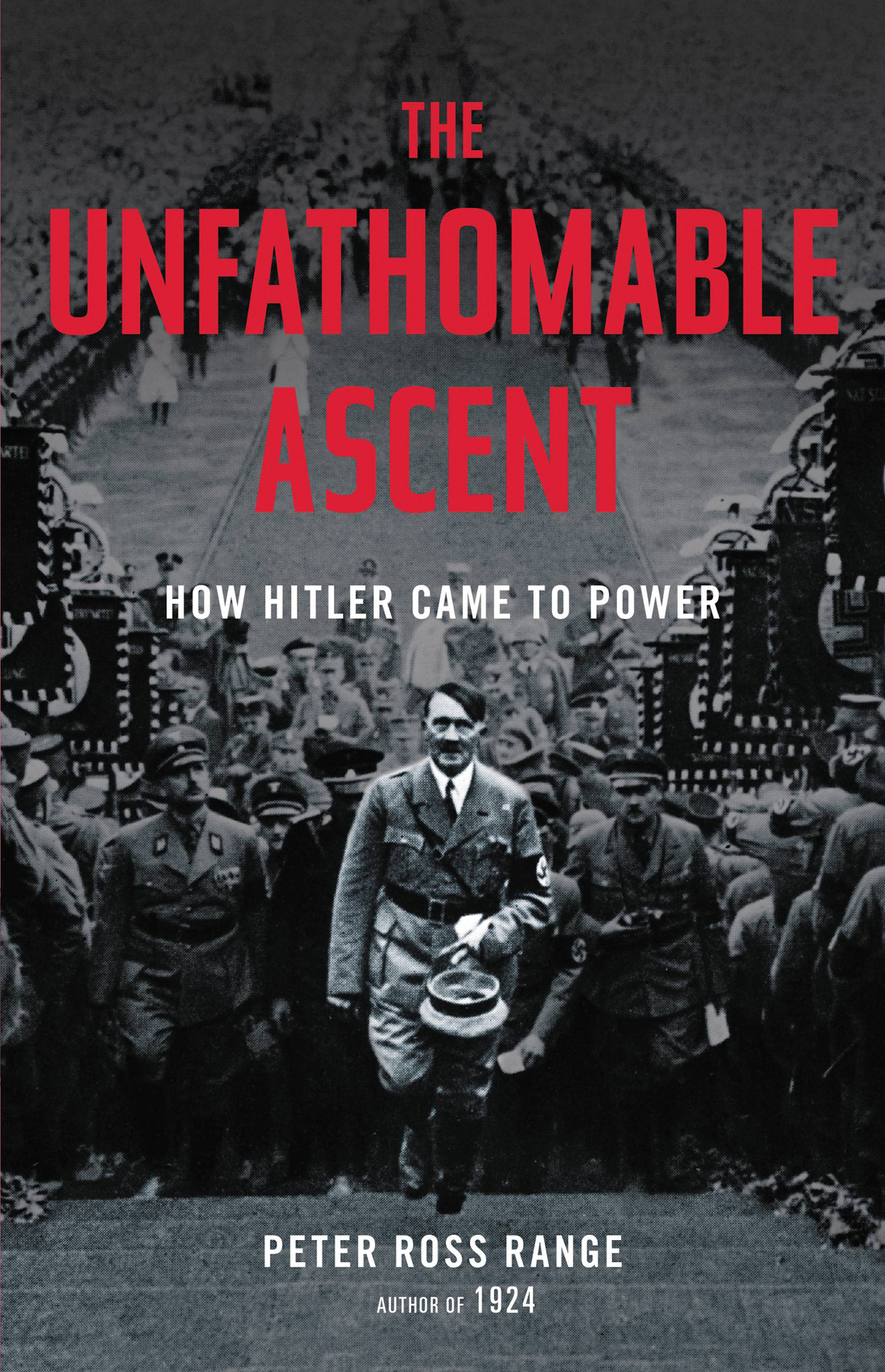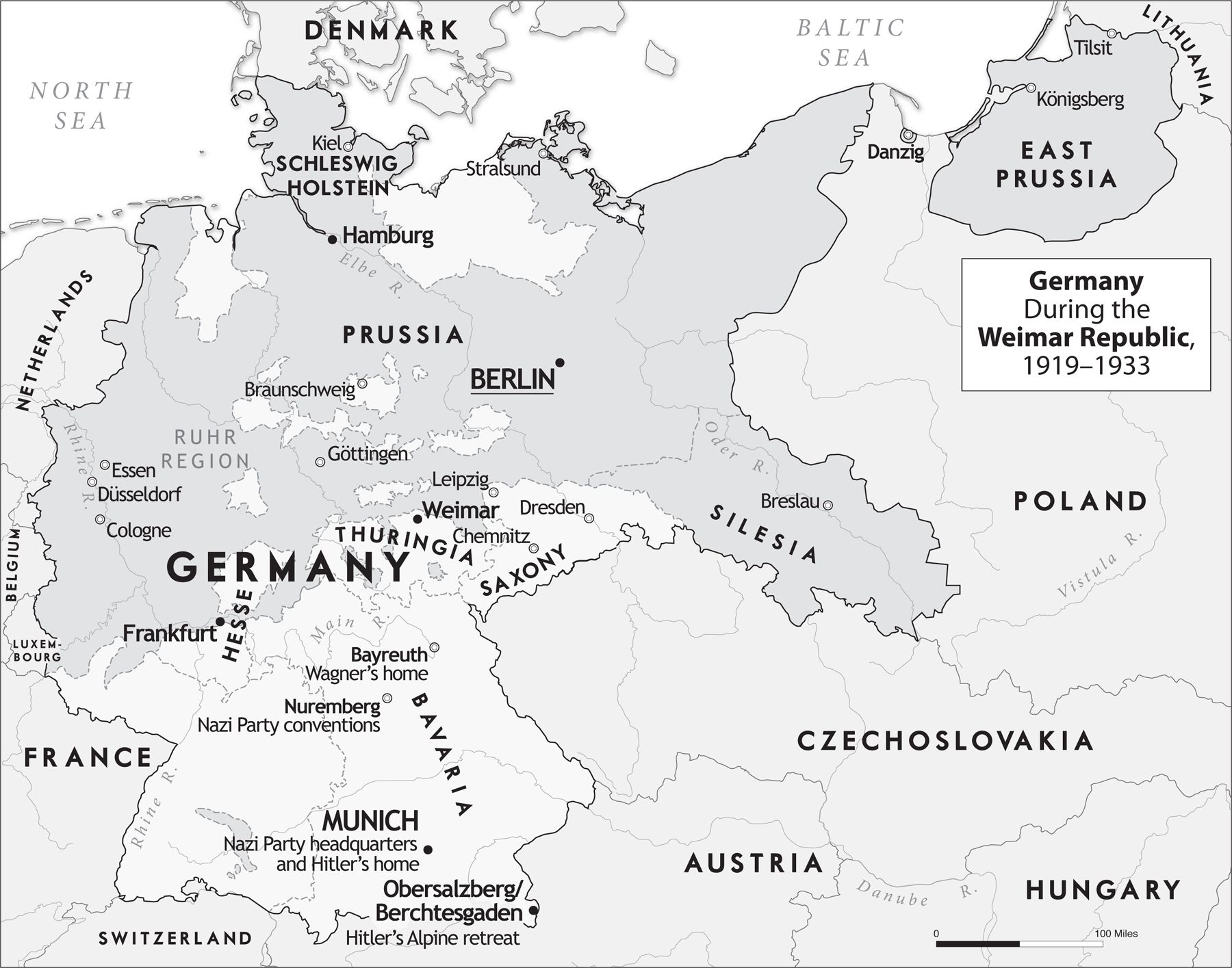1889: Hitler is born in Braunau am Inn, Austria.
1908: Hitler moves to Vienna, Austrias capital, where he fails the arts academy admissions exam. He falls on hard times, living in a homeless shelter for men.
1913: Dodging the Austrian draft, Hitler moves to Munich, Germany.
1914: Hitler enlists in the First World War, serving as a battlefield messenger.
1918: The war ends in Germanys defeat. Revolution transforms the country from a monarchy into a democracy that becomes known as the Weimar Republic.
1919: Hitler joins the tiny German Workers Party in Munich.
192021: Hitler takes over the party, renaming it the National Socialist German Workers Party: the Nazi Party.
1923: Hitler attempts a coup dtat called the Beer Hall Putsch. It fails, and he is thrown in prison for more than a year.
1925: Released from prison, Hitler reestablishes the Nazi Party.
1928: In his first attempt at national politics, Hitler fails. The Nazi Party wins only 2.6 percent of the vote in a national parliamentary election.
1930: Hitler stuns Germany and the world by winning 18.3 percent of the national parliamentary vote, making the Nazi Party the countrys second-largest party.
1932: In early spring, Hitler runs for president against incumbent Paul von Hindenburg. Hindenburg is reelected, but Hitler captures 37 percent of the vote.
1932: In late April, the Nazi Party wins an average of 37 percent of the vote in a series of state elections involving 80 percent of the countrys voters.
1932: In July, Hitler again wins 37 percent of the vote in the years most important contest: the national parliamentary election. The Nazi Party is now uncontestably Germanys strongest party.
1932: In November, the votes won by Hitlers Nazis fall to 33 percent in yet another national parliamentary election. Though still the strongest party, the Nazis and their leader are considered to have peaked and to be in gradual decline.
1933: On January 4, Hitlers fortunes are revived in a secret meeting with former chancellor Franz von Papen, who wants to use Hitlers popularity for his revenge-seeking goal of becoming chancellor again.
1933: Throughout January, a series of secret meetings reverses the power constellation. Papen agrees to become vice-chancellor in a cabinet with Hitler as chancellor.
1933: On January 30, Hitler is made chancellor of Germany.
Max Amann. Hitlers company sergeant during the First World War, Amann later became head of the Nazi Party publishing enterprise, Franz Eher Nachfolger.
Edwin and Helene Bechstein. Heir to a piano-making fortune, Edwin supported his wifes habit of donating funds to Hitler and hosting him at their villas in Berlin and Bayreuth.
Otto von Bismarck. A Prussian aristocrat and chancellor of Germany from 1871 to 1890, Bismarck is credited with achieving victory in the Franco-Prussian War (187071) and with uniting the fragmented German lands into a single country.
Eva Braun. A Munich shopgirl, Braun became Hitlers girlfriend, mistress, andjust before their joint suicide, in 1945his wife.
Aristide Briand. A French prime minister and foreign minister, Briand formed a friendship with German foreign minister Gustav Stresemann. Briand, Stresemann, and Austen Chamberlain, the British foreign secretary, earned Nobel Peace Prizes.
Hugo and Elsa Bruckmann. A conservative Munich publisher, Hugo indulged his wifes penchant for making financial gifts to Hitler and connecting him with influential people. Elsa advanced Hitlers social standing by often inviting him to her weekly salon in the couples Munich mansion.
Heinrich Brning. A technocratic financial expert and austere Roman Catholic, Brning earned the nickname the Hunger Chancellor for his harsh deflationary policies as chancellor during the Depression.
Houston Stewart Chamberlain. A British-born political philosopher, Chamberlain became a German, married Richard Wagners daughter, Eva, and wrote (in German) a two-volume racist tome entitled The Foundations of the Nineteenth Century.
Bruno Czarnowski. A rabidly anti-Semitic Storm Trooper, Czarnowski created scurrilous slide shows for Hitlers grassroots political campaigns.
Charles G. Dawes. A banker and US vice president under Calvin Coolidge, Dawes in 1923 led a commission to devise a viable reparations plan to help stabilize the turbulent German economythe Dawes Plan.
Theodor Duesterberg. Duesterberg was a leader of the 250,000-strong Steel Helmet veterans association.
Friedrich Ebert. Weimar Germanys first president, Ebert was a workingman who rose to the chairmanship of the Social Democratic Party (SPD).
Dietrich Eckart. Playwright, publisher, right-wing rou, and coffeehouse philosopher, Eckart held radical views on nationalism, Jews, and German destiny that profoundly influenced Hitler.
Hermann Esser. Esser was an early Nazi Party member who belonged to Hitlers Munich clique, a group that relished beer-hall brawls and virulent anti-Semitism.
Hans Frank. Hitlers lawyer and sometime confidant, Frank became governor-general of occupied Poland during the Third Reich. Sentenced to death during the Nuremberg trials, he hastily wrote a memoir that included his own wonderment at Hitlers unfathomable ascent.


